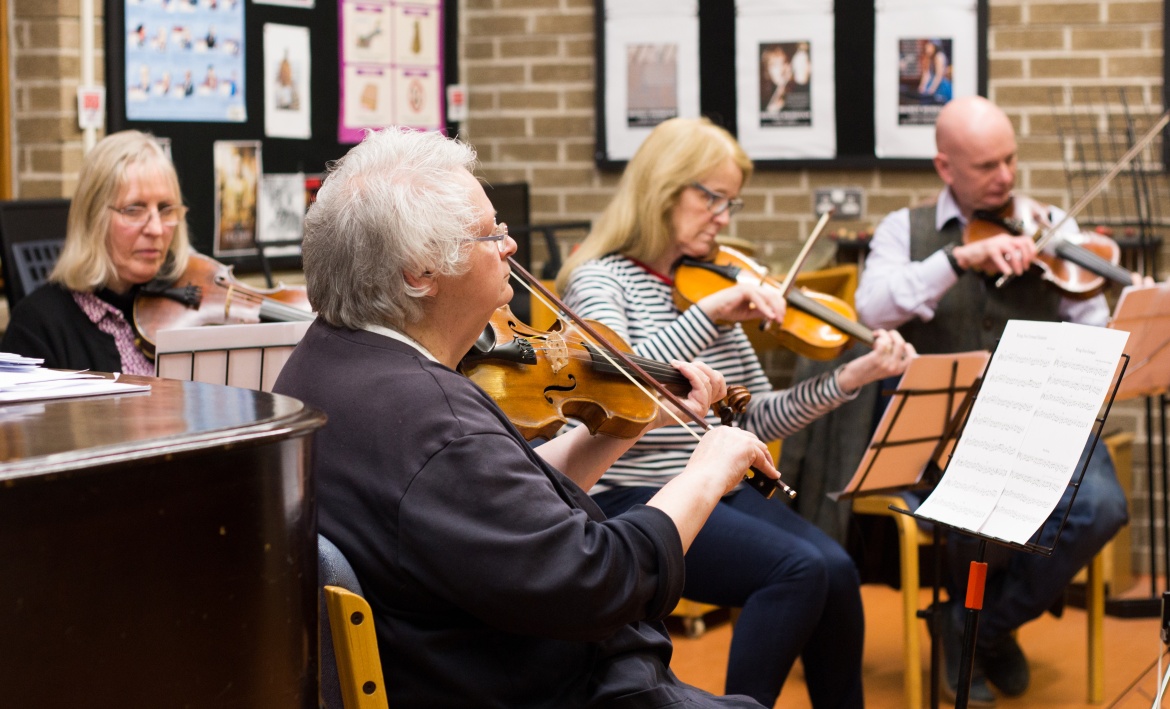Adult Learners
A Common Approach primarily focuses on the teaching of children. However, the resource can also be used to support the teaching of adult learners.
Adult learners may be attempting to play an instrument or to sing for the first time; they may want to take up an instrument they studied in the past or start singing again. Others may be self-taught and would like to formalise their learning in order to gain more skills, knowledge and understanding. Adults may also be motivated to learn to sing or play an instrument for non-musical reasons, such as social interaction or mental health and well-being. Discussing their reasons for starting lessons and what they hope to gain from the experience will enable teachers to structure lessons accordingly.
Whatever their starting point, it is not unusual to find that adult learners have low confidence. They may fear it is too late for them to start, or they may be affected by an earlier attempt to learn an instrument or a negative experience of music education as a child. They may have been told that they are not musical, and not been given the right support to develop their skills, or been forced to take examinations or learn music that they did not enjoy. Sometimes low confidence can lead adults to not fully admit how much they already know, which requires the teacher to be very flexible in terms of planning and expectations. Low confidence can also sometimes lead to adult learners pretending that they actually have very high levels of confidence, which can then mean that setbacks affect them more and take longer to recover from.
Teachers can assist adult learners to overcome these reservations by trying to raise their self-esteem and willpower and by giving them realistic, positive expectations. Adults can bring many positive attributes to learning, even if their technical expertise is modest and takes time to develop. These may include strong motivation, a knowledge of how to work on their own, persistence in adversity, some understanding of musical styles, an independent initiative which enables research and learning, a wealth of experience and, above all, a love of music. The challenge for teachers is to build on adult learners’ diverse qualities and backgrounds and enable them to move forward, both technically and musically.
While children may have friends at school who share their love of music, adults may find that their friends and family members do not understand why they have chosen to learn to sing or play an instrument as an adult. Joining an ensemble can help adult learners to develop a supportive community of peers with whom they share a common interest. Adult learners may need signposting to suitable opportunities, as ensembles for adults may not be as widely advertised as those for children.
